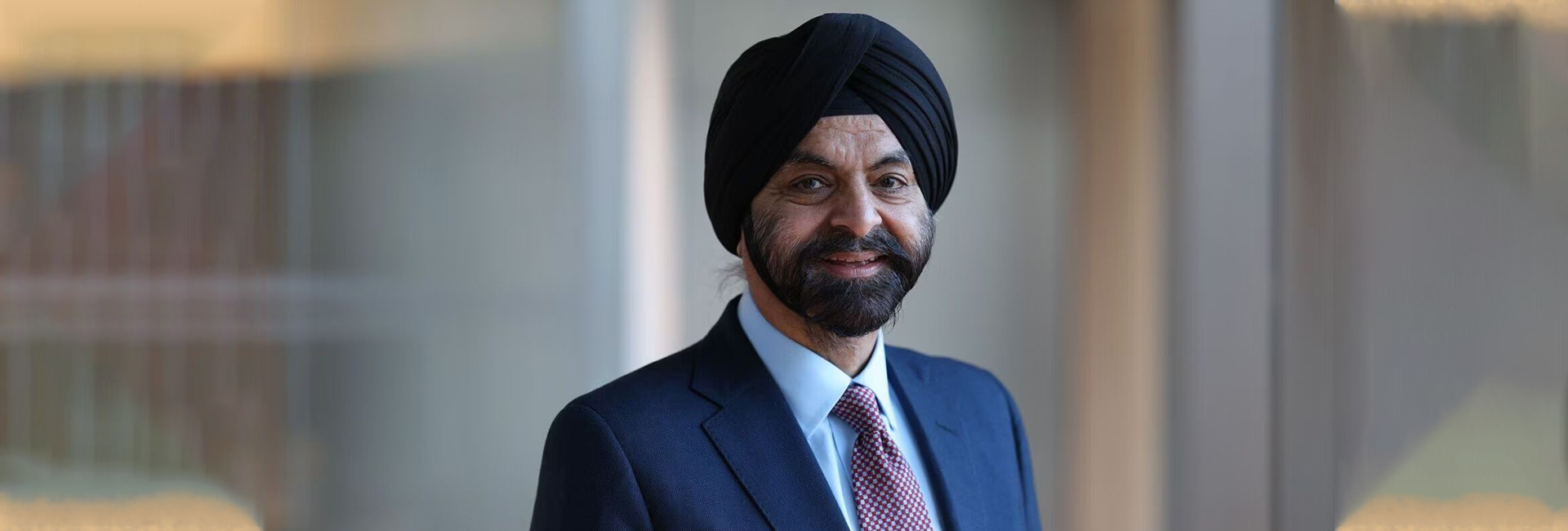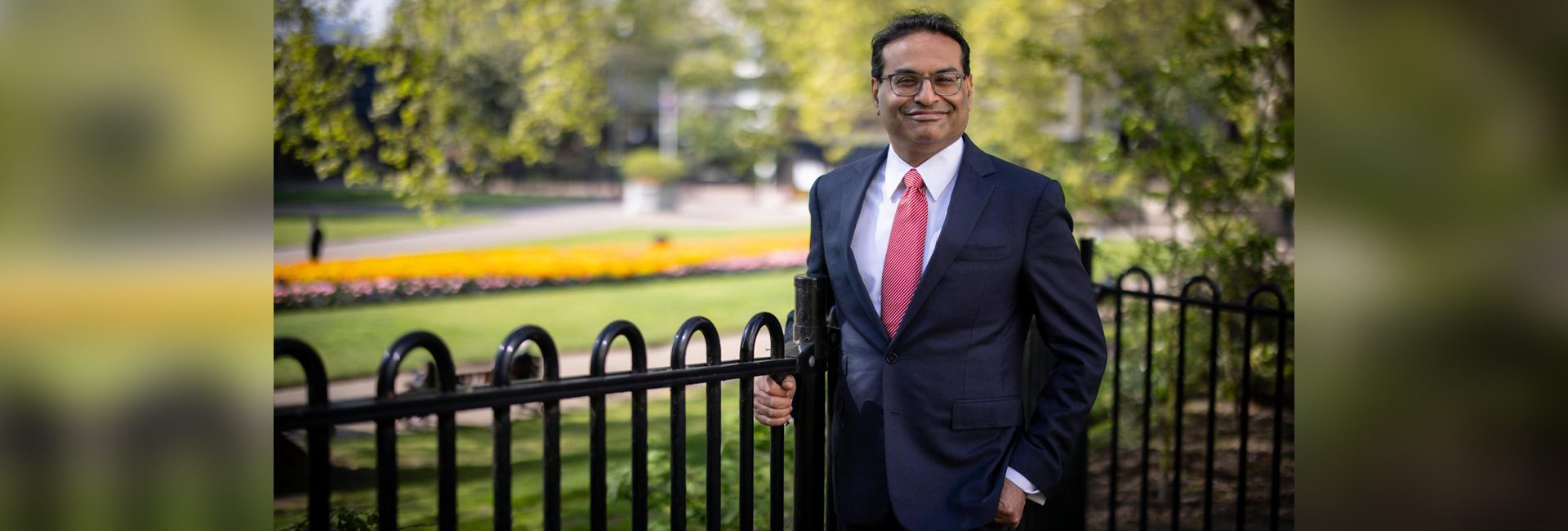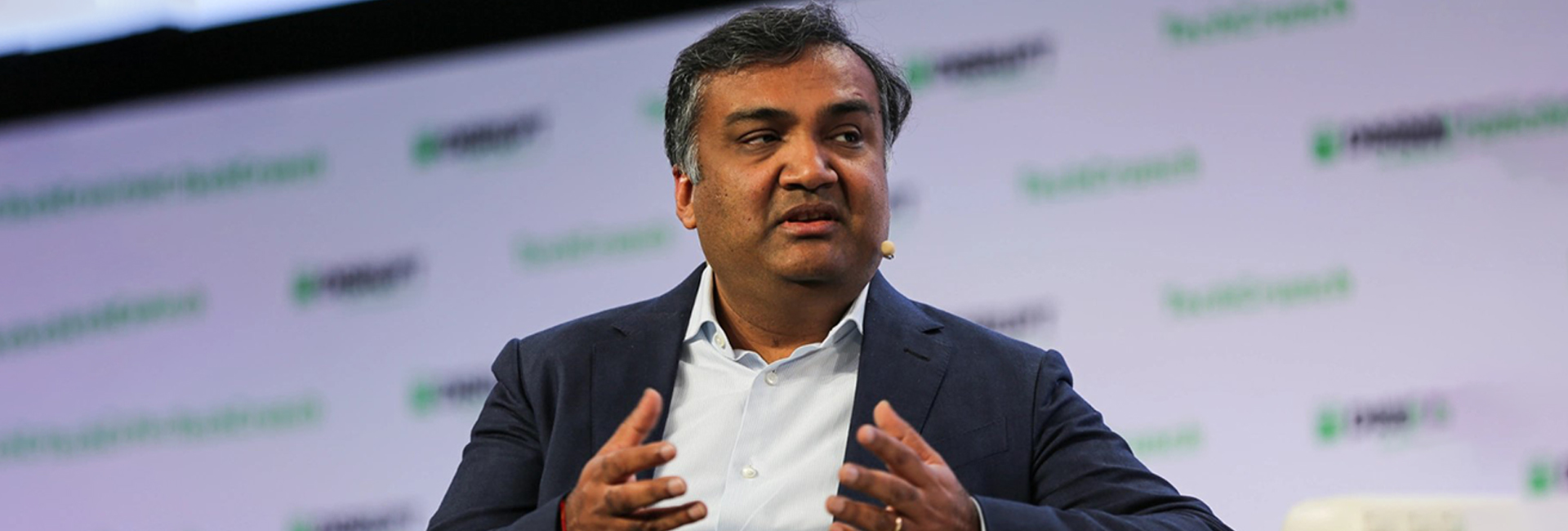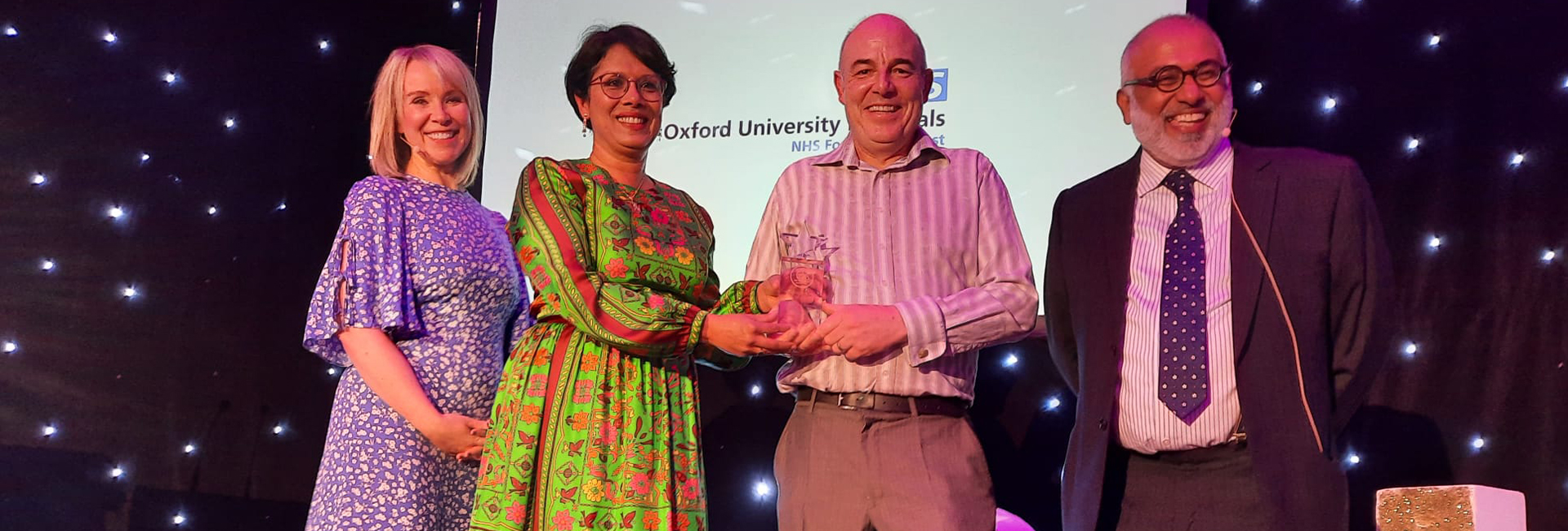(May 5, 2023) In a historic appointment, the World Bank confirmed that Ajaypal Singh Banga, an Indian-origin business executive, will be taking over as its next President. As the first-ever Indian-American to head the World Bank, Banga’s appointment marks a significant milestone. Confirming his appointment, the World Bank said in a press statement, “The Board looks forward to working with Mr. Banga on the World Bank Group Evolution process, as discussed at the April 2023 Spring Meetings, and on all the World Bank Group’s ambitions and efforts aimed at tackling the toughest development challenges facing developing countries.”
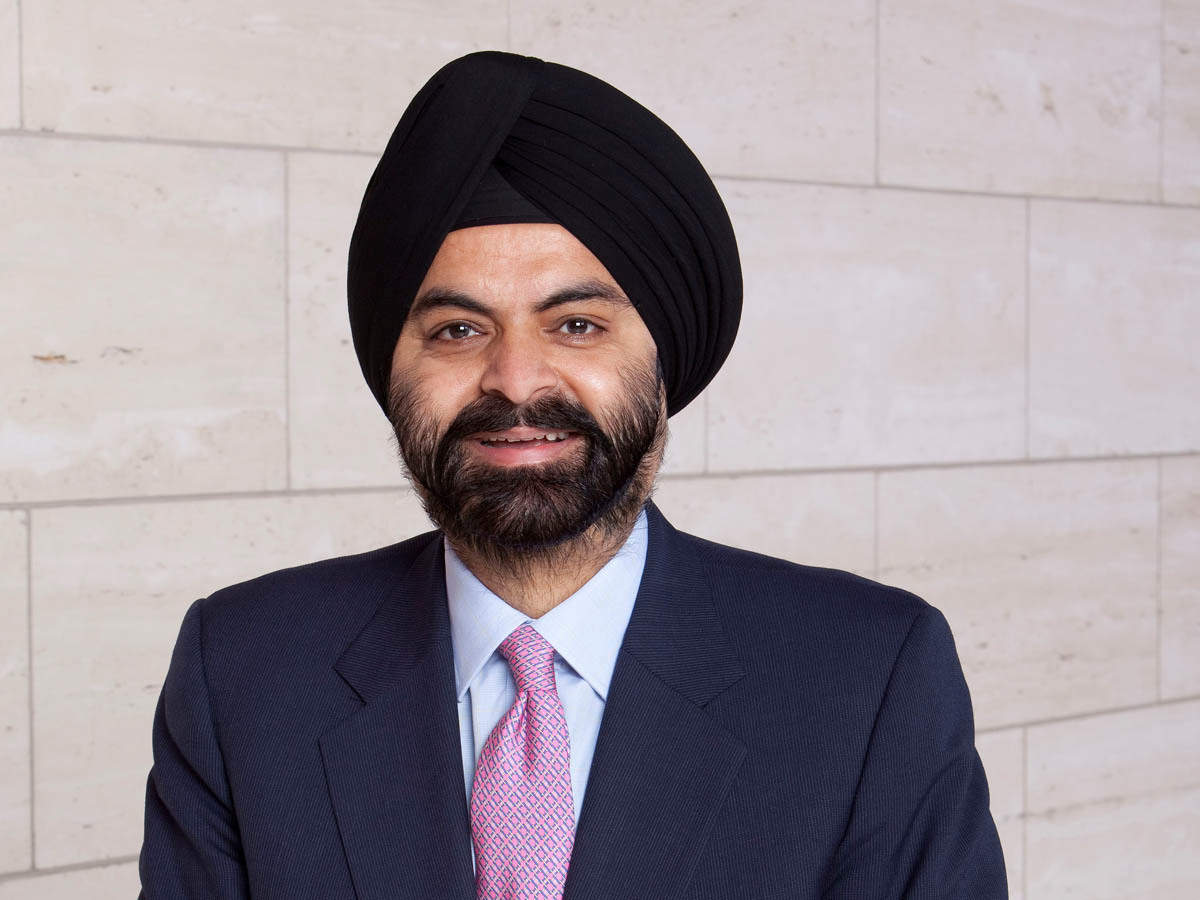
Ajaypal Banga was nominated earlier this year by US President Joe Biden to lead the institution. During his candidacy, the top business executive emphasised the importance of greater private sector funding to address global problems, stating, “There is not enough money without the private sector.” Banga, who will assume his new role on June 2, envisions the World Bank established a system to share risk or mobilise private funds to achieve its goals. As the Indian-American business executive gears up to lead the World Bank, Global Indian takes a look at his glorious 40-year-long career.
Ahead of the curve
Born to an Indian army officer in Khadki cantonment, the business executive is the younger brother of Manvinder “Vindi” Singh Banga, the senior partner at the private equity fund Clayton, Dubilier & Rice. Growing up in various parts of India, he learned a lot about adaptability and managing people. “I grew up moving from city to city. Adults find it hard to move, but kids don’t. Moving frequently makes you flexible, quick to make friends, quick to adjust and adapt, and allows you to glide between cultures and people. Different parts of India have completely different cultures. The North is completely different from the East and the West. This is completely different than even in the South,” he said, adding, “The one thing it did for me more than anything else was this easy adaptability, the willingness to adjust, and the willingness to just fit in, I think it’s helped me in all my life.”
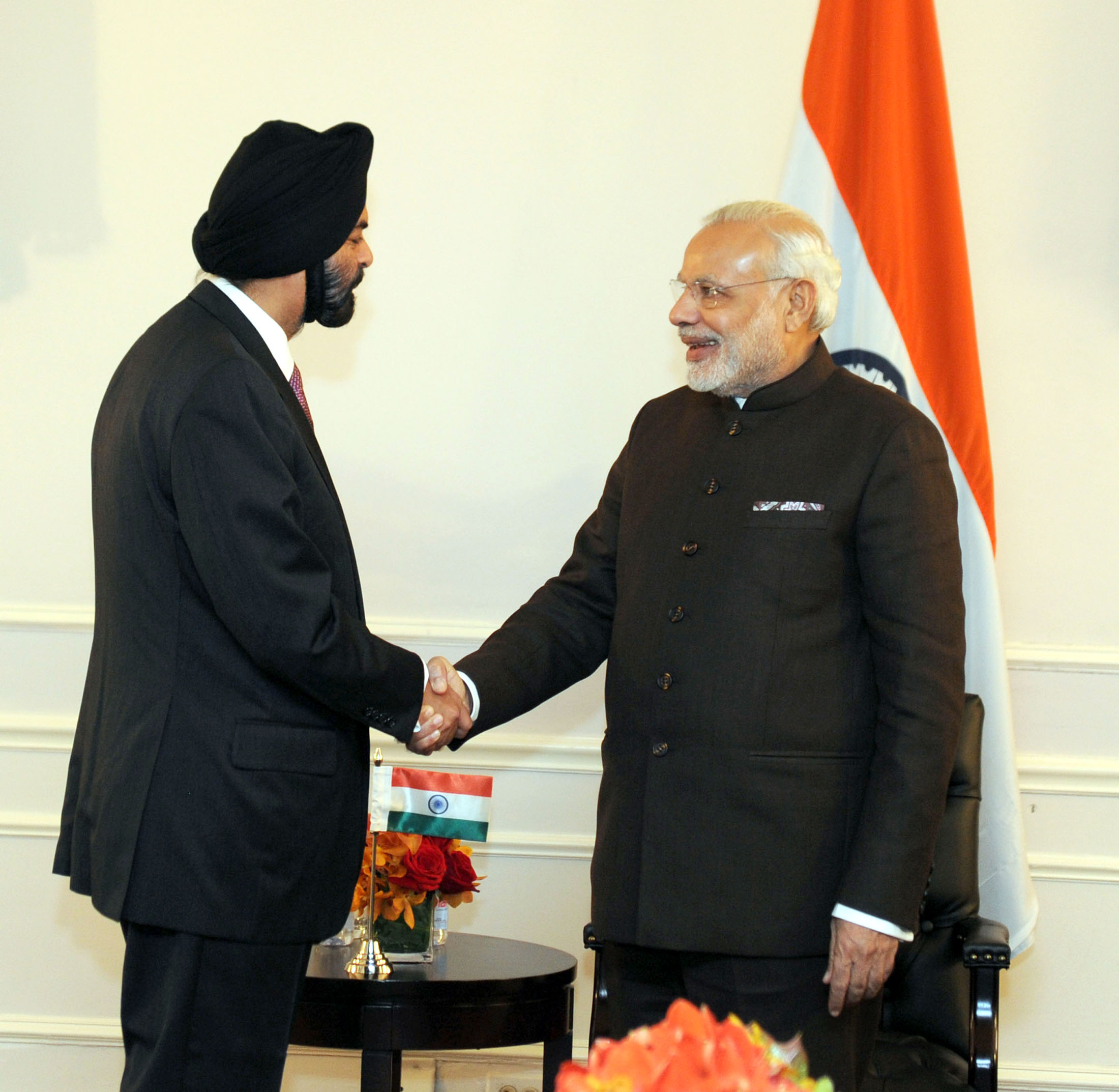
Prime Minister, Narendra Modi met Ajay Banga, in New York
Having studied in some of the finest schools in the country, including St. Edward’s School, Shimla and Hyderabad Public School, the business executive went on to graduate with a Bachelor of Arts (Honours) degree in Economics from St. Stephen’s College, Delhi, and later pursued an MBA from the Indian Institute of Management, Ahmedabad. Soon after finishing his studies, Mr. Banga started his career with Nestlé in 1981, where he worked for 13 years before moving to PepsiCo.
“When I was a young manager in India, infrastructure was relatively poor. Labour relations were challenged. Phone lines were awful. You couldn’t get through to people or distributors. If you were waiting for baby food trucks to reach you, it wasn’t that you knew they would arrive in three days; it could take nine days. So that idea of knowing how to deal with ambiguity, of knowing how to deal with that form of unpredictability, it’s the way I’m trained to think,” shared the business executive, adding, “The idea of taking thoughtful risks came from that environment. And having the sense of urgency to make that decision and take that risk without knowing everything, but having had the patience at the same time to listen to people who know more than you — that is an interesting balance.”
Taking the plunge
In 1996, Ajaypal Banga moved to the United States while working for PepsiCo and handled various roles during his tenure, including CEO of the company’s operations in India and Southeast Asia. While the business executive was still settling in his role, a grave terrorist attack on the USA shook the world and in its aftermath, Banga too had to endure discrimination. “Post-9/11, I have been accosted by people on the street and called names. I’ve been taken aside randomly for searching at every T.S.A. checkpoint. I get that. But again, you can be pissed off about it, or you can realise that this is people trying to do their job. They’re trying to keep me safe as well as you. But I’m not resentful,” he shared during an interview.
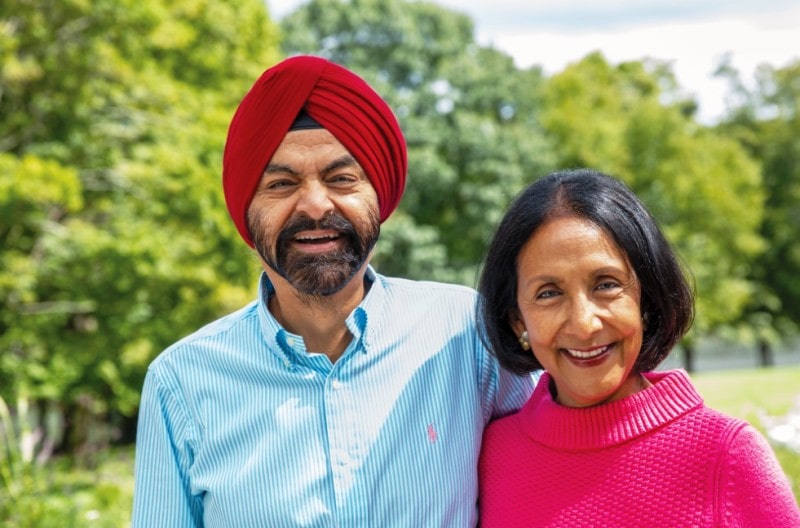
Mr. Banga with his wife, Ritu
The business executive was naturalised as a US citizen in 2007. And soon after that, Ajaypal Banga became the CEO of Mastercard, and also a member of its board of directors. When he took over the company, Mastercard wasn’t in great shape. Instead of giving quarterly earnings guidance to the company’s investors, Banga offered them a rolling forecast of where Mastercard would be in the next couple of years. “I told my investors, you should expect to see over the next three years is growing at an average growth rate of this to this, this range, within average profitability of this to this, this range. And I’m not going to make other commitments to you. I’m going to run my company. I want to grow revenue, not maximise my profitability,” he shared. Almost all his strategies worked out and soon enough Mastercard stocks soared by more than 1,000 percent during his tenure, outperforming competitors Visa and American Express.

Mr. Banga receiving Padma Shri by former President of India, Dr. Pranab Mukherjee
Realising his potential in leading a financial institution, the former US President appointed Ajaypal Banga to serve as a member of the President’s Advisory Committee for Trade Policy and Negotiation in 2015. The business executive was also elected as the chairman of the International Chamber of Commerce (ICC) succeeding Paul Polman. The Government of India awarded Banga the civilian honour of the Padma Shri in 2016.
Leading the World
Banga’s appointment as the new President of World Bank has been applauded across the globe. As Banga takes the reins, the world economy faces significant challenges, including slowing global growth and high-interest rates. Low-income countries are expected to face a double shock from higher borrowing costs and reduced demand for exports, fueling poverty and hunger.
With the bank estimating that developing countries will need $2.4 trillion every year for the next seven years just to address the costs of climate change, conflict, and the pandemic, Banga aims to balance World Bank’s new objectives without diluting the pressing economic development needs of its member countries in developing economies. “Climate is important, but we don’t want to have a trade-off where we have an agenda that will be climate versus development,” the business executive said during an interview.

